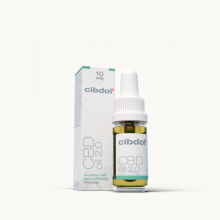Can CBD Oil Make You Gain Weight?
Published:
Cannabidiol (CBD) oil has become increasingly popular in recent years due to its potential health benefits. Some people use CBD oil to help manage pain, anxiety, seizures, and more. But one common question is whether CBD oil can lead to weight gain.
Contents:

What is CBD Oil?
CBD is one of over 100 chemical compounds called cannabinoids found in the cannabis plant. Unlike the main psychoactive cannabinoid THC, CBD does not produce a high feeling.
CBD oil is made by extracting CBD from the cannabis plant and diluting it with a carrier oil like coconut or hemp seed oil. CBD oil can be taken orally in the form of tinctures, capsules, or edibles. It can also be applied topically.
Can CBD Oil Cause Weight Gain?
There is limited research specifically looking at CBD and weight gain. However, based on what we know so far, CBD is unlikely to lead to significant weight gain for most people. Here are some key points:
CBD does not stimulate appetite like THC
THC, the psychoactive compound in cannabis, is well-known for stimulating appetite and commonly leads to increased food intake. This is referred to as "getting the munchies."
CBD does not act on the same receptors as THC and has not been shown to increase appetite and food intake in the same way.
So while THC may promote weight gain in some people due to increased calorie consumption, CBD does not appear to act as an appetite stimulant.
CBD may help turn bad fat into good fat
Emerging research suggests CBD may actually aid the browning of fat cells and turn white fat into brown fat.
White fat stores energy while brown fat burns energy and calories. Having more brown fat may help boost metabolism. This browning effect on fat cells could potentially promote weight loss rather than gain. However, more human studies are needed.
CBD may reduce anxiety and depression
Stress, anxiety, and depression can lead some people to overeat as a coping mechanism. By reducing anxiety and lifting mood, CBD may help reduce emotional eating in those prone to it.
Less stress and anxiety may also help promote healthier sleep. Poor sleep is linked to weight gain and obesity. So if CBD oil improves sleep, it could indirectly aid weight control as well.
CBD may help manage metabolic disorders
Metabolic disorders like diabetes, obesity, and metabolic syndrome are risk factors for weight gain. Emerging research suggests CBD could potentially help manage these conditions.
For example, CBD has been shown in animal studies to reduce inflammation and blood sugar levels associated with obesity and diabetes. Managing blood sugar and inflammation could help maintain a healthy metabolism and weight.
More research is needed on CBD and weight
While early findings are promising, human research looking specifically at CBD and body weight is still very limited. More high-quality studies are needed to determine if CBD oil use leads to weight changes over time.
It's also important to note that cannabis strains high in CBD and low in THC do not seem to alter food intake or promote weight gain according to studies so far. But individual reactions can vary.
Potential Side Effects of CBD Oil
CBD oil is generally considered safe and well-tolerated. But some people can experience side effects, which may include:
- Diarrhea
- Changes in appetite and weight
- Fatigue
- Interactions with other medications
The side effects experienced can vary based on the dose taken and individual factors. Talk to your doctor before using CBD oil if you take any medications or have any medical conditions.
Should You Use CBD Oil for Weight Loss?
Some early research suggests CBD could potentially help promote weight loss and fat browning. However, the evidence is currently limited and inconclusive.
CBD oil should not be viewed as a magic weight loss solution. Lifestyle choices remain key for weight control, including:
- Eating a nutritious diet
- Exercising regularly
- Getting enough sleep
- Managing stress
That said, CBD oil may help reduce some barriers to weight loss like anxiety and poor sleep in those prone to these issues.
As with any supplement, it's best to start with lower doses of CBD oil for weight loss and increase slowly as needed. Talk to your doctor before using CBD oil, especially if taking any medications or have underlying health conditions.
While CBD may not directly make you gain weight, more research is still needed to determine if it can aid weight loss. Maintaining a healthy lifestyle remains the foundation for managing weight.
Key Takeaways: Can CBD Oil Cause Weight Gain?
- There is limited research on CBD oil and weight gain specifically. Based on what we know, CBD is unlikely to cause significant weight gain for most people.
- CBD does not stimulate appetite and food intake like THC does. It may even aid weight loss and fat browning according to some animal studies.
- CBD may help reduce anxiety, depression, inflammation, and poor sleep associated with weight gain. More human research is still needed.
- Potential side effects of CBD oil can include changes in appetite and weight, but this varies individual to individual.
- While early studies are promising, there is currently limited evidence that CBD oil can promote weight loss. A healthy lifestyle is key.
Can CBD Oil Make You Gain Weight? Conclusion
Based on current research, CBD oil is unlikely to make you gain a significant amount of weight. CBD does not stimulate appetite like THC and may even have properties that could aid weight loss and metabolism according to some animal studies. However, human research is still very limited. There is no strong evidence at this time that CBD oil will help with weight loss, though it may assist with factors like anxiety and poor sleep that can lead to weight gain. As with any supplement, it's best to start with lower CBD oil doses and focus on making healthy lifestyle choices to manage your weight.















